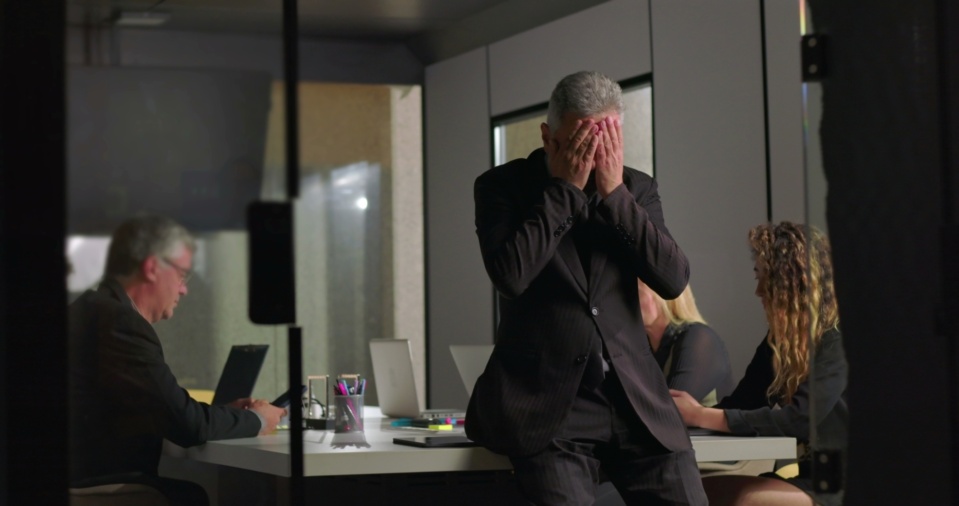
What not-for-profit leaders need to know in 2026
Posted on 12 Feb 2026
Our special NFP trends report distils the views of more than two dozen experts.
Posted on 16 Aug 2023
By Adele Stowe-Lindner

Stepping up into a role as chair of the board is a big deal.

Knowing the mental load that is involved and knowing that you may be part of a team but that the buck stops with you, requires courage to put your hand up.
Putting your hand up to leave is often equally as brave.
When we have been in a role a long time, we know the intricacies and the back stories, and we retain a lot of institutional memory. We know why we chose one option over another, and whether we would do that again, or go a different way. We can read a room: whether it’s our people or visiting VIPs, reading it to see who is there (and who isn’t), who talks to who (or who doesn’t), who might leave soon (and who should but won’t). We can make predictions about how the organisation and its stakeholders will react to changes, and often be right.
This knowledge gives us confidence, security and status. Saying goodbye to any role as the acknowledged expert is a tough decision, because the loss of that status will leave a hole in us.
World leaders are not immune from such decisions. When Jacinda Ardern resigned as New Zealand’s Prime Minister early this year, she explained: “We give all that we can for as long as we can. And then it’s time. And for me, it’s time”.
Knowing when to go is tough, particularly because the best time is often when you’re at your best, as far as your stakeholders are concerned.
Yet leaving on a high is not just about you. It also means you will have invested significant time (probably years) into ensuring the capacity, experience and talent of those around you is in tip-top shape, so that when you do say your goodbye, others are ready to fill your shoes and make them their own.
This type of leadership is more about ensuring the success of the cause, values and organisation you hold close to your heart than about you as a leader and chair.
When you’re ready to go, even before you know you are ready, you will probably start to feel drained of energy, and even a bit cranky.
A great leader is a life-long learner, and this necessarily means looking for new challenges either within the current role (through innovations and changes, perhaps) or in new pastures entirely.
For the rest of the board, it means that when a strong leader proclaims it’s time to “shake it up” and says “goodbye”, it is incumbent on the remaining directors to celebrate that self-knowledge, trusting that the leader’s call to step down brings with it a challenge for others to consider stepping up, and to enjoy the position’s risks and rewards until it’s their time to move on.
More information
Help sheet: 10 questions to ask about succession planning
Help sheet: Board succession – part one | part two | part three
Agony Uncle: Where do we start with recruiting new board members?

Posted on 12 Feb 2026
Our special NFP trends report distils the views of more than two dozen experts.

Posted on 10 Feb 2026
As my family dropped our teenage son off at the airport in the first week of January to embark on a…

Posted on 11 Dec 2025
Community Directors trainer Jon Staley knows from first-hand experience the cost of ignoring…

Posted on 10 Dec 2025
As a qualified yoga instructor who learned the practice in her hometown of Mumbai, Ruhee Meghani…

Posted on 10 Dec 2025
Anyone working in an organisation knows it: meetings follow one after another at a frantic pace. On…

Posted on 10 Dec 2025
Stressed, overwhelmed, exhausted… if you’re on a not-for-profit board and these words sound…

Posted on 10 Dec 2025
The Institute of Community Directors Australia trains over 22,000 people each year, which gives us…

Posted on 03 Dec 2025
Many not-for-profit (NFP) board members in Australia are burnt out, overwhelmed and considering…

Posted on 26 Nov 2025
A roll call of Victoria’s brightest future leaders has graduated from a testing and inspiring…

Posted on 12 Nov 2025
At the Institute of Community Directors Australia, we believe that stronger communities make a…

Posted on 12 Nov 2025
Like many Community Directors members, Hazel Westbury is a community leader who isn’t easily…

Posted on 11 Nov 2025
I’ve seen what happens when fear of conflict wins out over taking a principled stand.